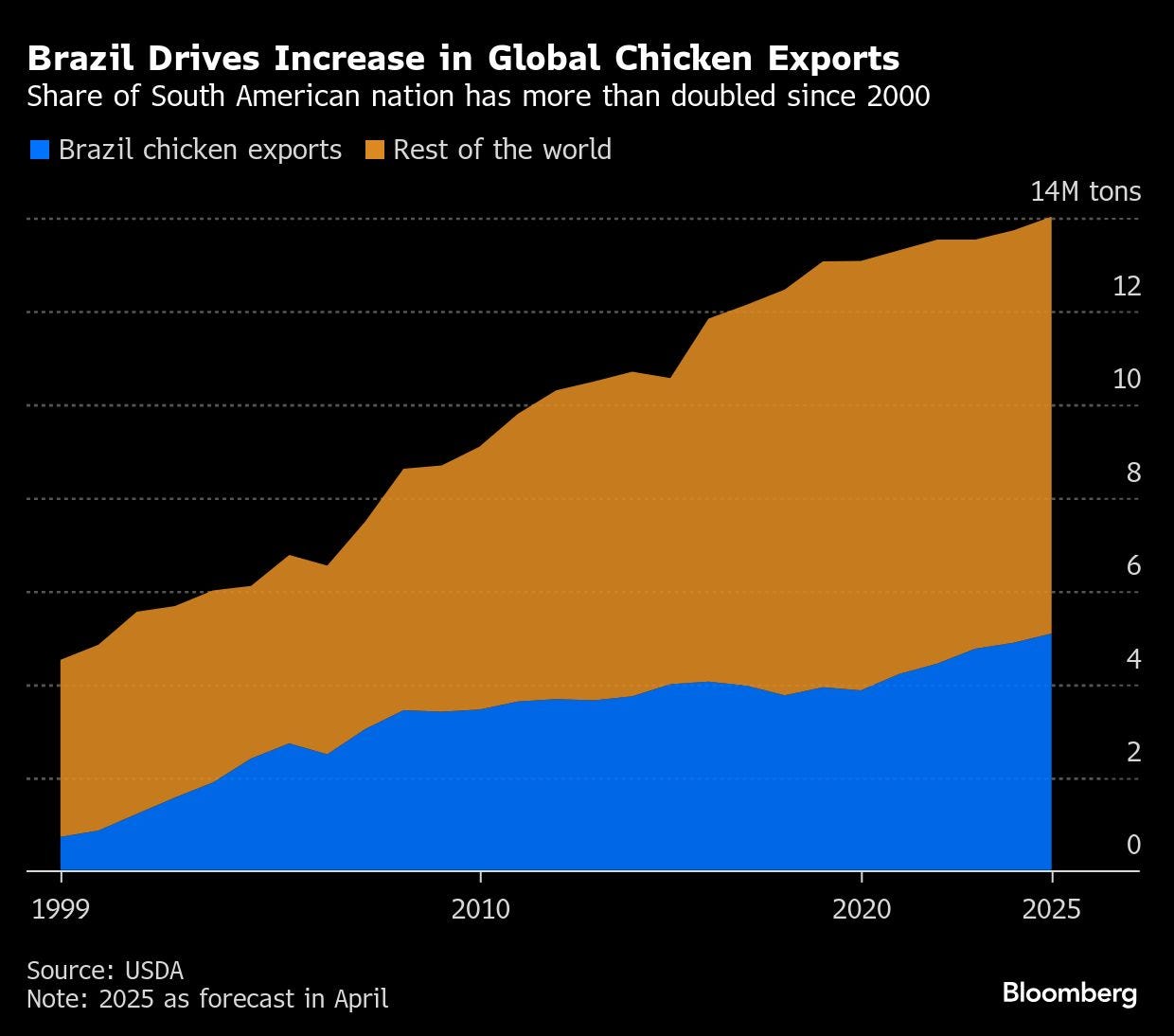By Clarice Couto and Gerson Freitas Jr.
The detection of bird flu in a single poultry farm in southern Brazil is reverberating around the world, depriving buyers from China to Europe of the chicken they’re increasingly voracious to consume.
Shipments to top destinations, which also include Mexico and South Korea, have been suspended as the world’s largest chicken exporter seeks to stop the deadly H5N1 strain from spreading. The bans have so far shut down markets accounting for more than $4 billion a year in export revenues, or 40% of the total, according to government data.
Brazil can’t easily be replaced. It supplies more than one-third of the global export market, and its longstanding status as a nation free from bird flu had so far given local producers an edge against competitors including the U.S. in the past few years.
“When you take the biggest global supplier away from a few large importers, you put them in a position of vulnerability,” said Joao Otavio Figueiredo, an analyst at consulting firm Datagro. Buyers that halted purchases from Brazil could soon see higher prices, he said.

Chicken demand has been growing globally as consumers seek cheaper alternatives to pricey beef. That’s boosted profits for companies such as BRF SA and JBS SA in Brazil, as well as Tyson Foods Inc. in the U.S. Consumers are expected to eat a record amount of chicken this year, the U.S. Department of Agriculture forecasts.
Global chicken supplies have been constrained by low egg fertility rates and a number of outbreaks of bird flu. The virus, which has already caused shortages of eggs in American supermarkets, will curb U.S. chicken exports to the lowest since 2015, the USDA projects.
Commercial farms in Brazil had so far been insulated from the virus, which has killed tens of millions of birds globally recently. Roughly two-thirds of the estimated growth in global chicken exports this year were anticipated to come from Brazil, the USDA data show.
That was until last week, when the virus was discovered at a commercial flock in the southern state of Rio Grande do Sul. And there are concerns it could spread, with suspected cases in neighboring Santa Catarina and the northern state of Tocantins still under investigation.
China and South Korea were some of the most affected buyers. The nations, which rely on Brazil for more than 70% of their imports, have both implemented nationwide bans. Countries that implemented only partial bans such as Saudi Arabia are likely to fare better.
The scale of the disruptions will depend on Brazil’s ability to prevent the spread of the deadly virus. Brazil’s southern region contains about 75% of its chicken production for export.
Brazil last halted shipments to China and Europe in July and restricted sales to other countries after detecting Newcastle disease at a commercial farm. But the bans were quickly reversed.
“The solution for importers is to take a more measured approach on the protective measures,” said Alcides Torres, founder at consulting firm Scot Consultoria. “There is no other supplier as Brazil.”
© 2025 Bloomberg L.P.